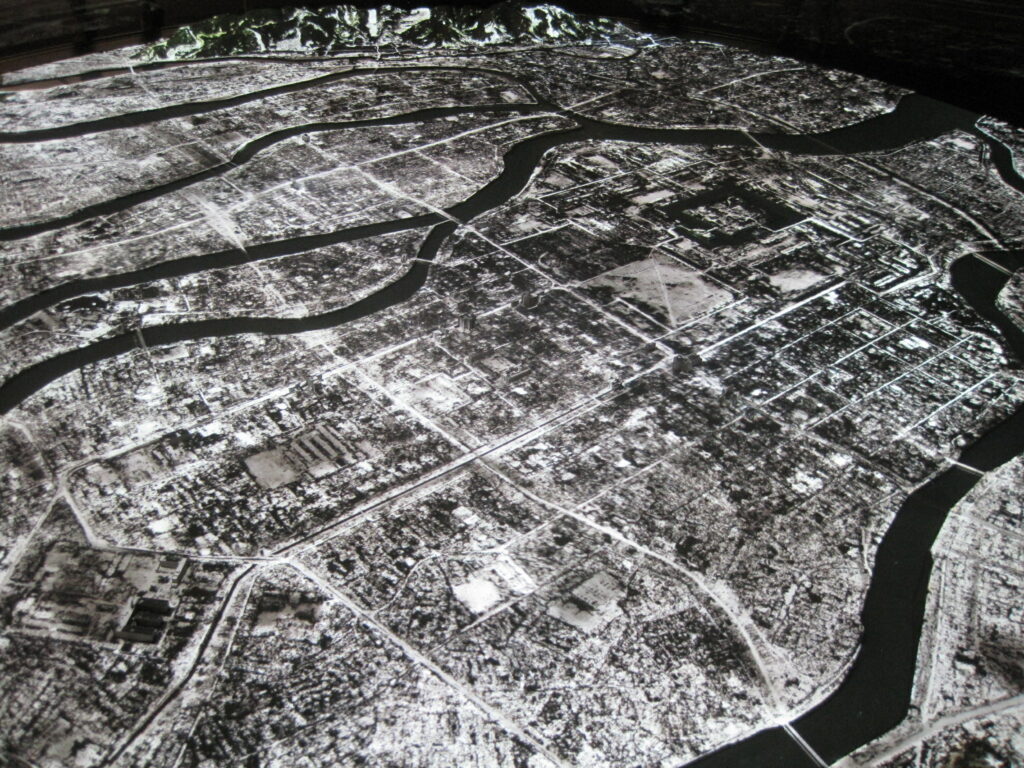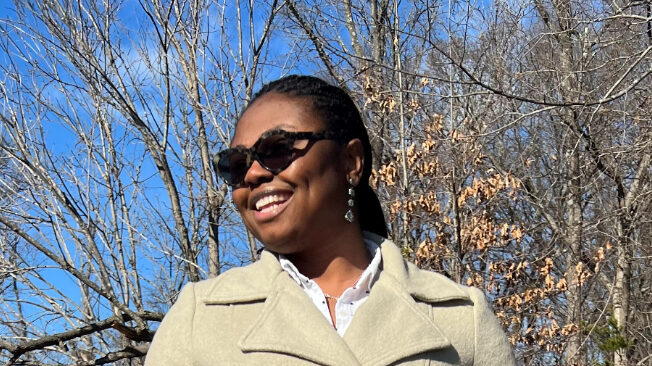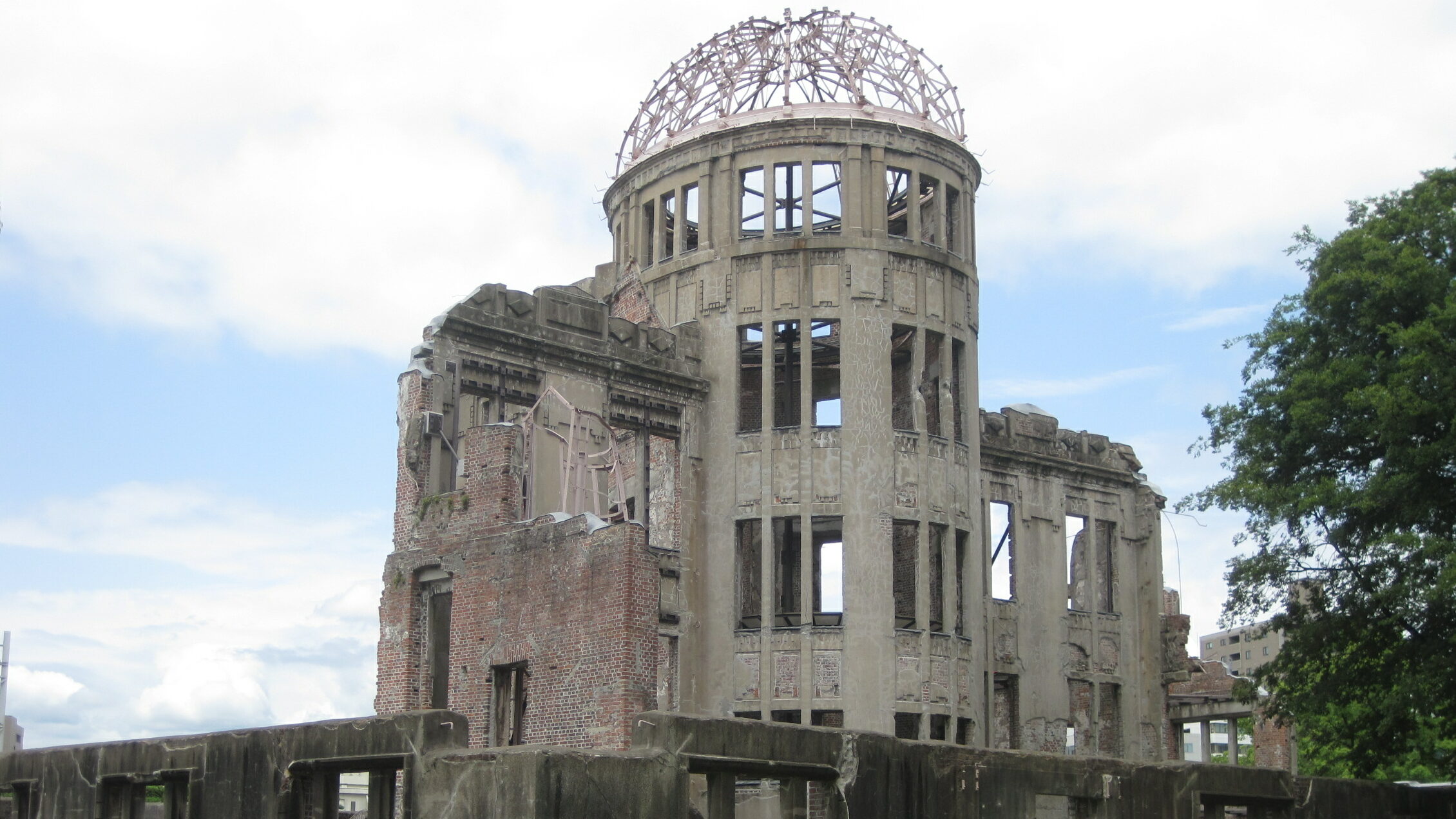Written by Stephanie Hassan
A few weeks ago, I learned that my current state of residence, the great state of North Carolina, was almost wiped off the map on the 23rd of January 1961, albeit mistakenly. What led to this incident was a US Navy Boeing B-52 nuclear bomber breaking up midair. As a result, it dropped its two nuclear payloads onboard.
These payloads landed near Goldsboro, NC with one of them almost detonating. Had just the one detonated, this would have easily led to the death of hundreds of thousands of people in the state and its environs. More than ever before, nuclear disarmament should be a cause we should all fight for. Errors like this cannot be predicted and therefore avoided.


Some decades before this incident in NC, the US dropped two atomic bombs on Hiroshima and Nagasaki during the second world war, this time deliberately. As I reflected and researched on these events of August 6-9, 1945, I came to the realization that racism contributed to the decision to drop these two bombs on the Japanese people. This is a point that is very easy to miss.
Black people knew about racism all too well and this was possibly the primary reason a lot of them were able to relate to the horrors that Japanese people faced and build a movement around it, while still fighting racism in their own country.
As we celebrate the Black History Month, it is worthy to remember some of the African American activist who, while fighting racism back home, still dedicated their time to fighting global issues like the bombing of Hiroshima and Nagasaki in 1945.
The book African Americans Against The Bomb by Vincent J. Intondi is dedicated to honoring the memories and works of these giants on the nuclear disarmament front.
It was no surprise to me that this book opens with the opinion of the Reverend J. E. Elliot, the pastor of St. Luke Chapel, that racism and discrimination were at play in the decision to use nuclear bombs in Japan. Dr. Martin Luther King, Jr. was able to make this connection lucidly and undoubtedly. According to him,
These two issues are tied together in many, many ways. It is a wonderful thing to work to integrate lunch counters, public accommodations, and schools. But it would be rather absurd to work to get schools and lunch counters integrated and not be concerned with the survival of a world in which to integrate.
This speaks to the concept of fusion organizing.
The book goes further to show us that minorities, especially African Americans, have historically opposed the use of nuclear weapons and supported nuclear disarmament. For example, Reverend Louis F. Lomax of Taber Presbyterian Church, said that the atomic bomb is a
diabolical weapon [and] man has more scientific knowledge than religion to control it.
Also in 1946, NAACP called for nuclear disarmament during its annual conference. Bayard Rustin, a future adviser to the Rev. Martin Luther King Jr., was vehemently against the bomb; Langston Hughes, who at the time was a novelist and essayist and also a columnist with a major black newspaper, The Chicago Defender, strongly opposed the use of the nuclear bomb on the Japanese people.
African American involvement in this organized action was even more prominent when other groups abandoned the cause. Through this action, African American leaders were masterfully able to, in a way, tie together the issues of black freedom, nuclear disarmament, and global human rights.
It is interesting to note, that while their fight for freedom and equality back home never stopped, African Americans still went out of their way to fight for the Japanese people they didn’t know, all in the spirit of fusion organizing. W.E.B. Du Bois in 1946 wrote an editorial in The National Guardian titled “The Crime Against Humanity” in which he condemned the bombings of Hiroshima and Nagasaki as “barbaric.”
In 1950, Paul Robeson, who was a famous singer, actor, and civil rights activist, wrote an article for the newspaper New World Review titled “Let us not forget Hiroshima” in which he criticized the US government for dropping the bombs and called for international disarmament.
Even though black activist, leaders and people contributed substantially to the fight for nuclear disarmament and other larger global issues, they are hardly recognized for it. The reason can be quite simple! The role of the African American leaders and people is often missed and sometimes diminished in larger global issues like nuclear disarmament, proliferation, and international human rights.
The media and scholars are quick to tie the African American movement to just the local issues of racism and discrimination while missing or outright ignoring the larger contribution of the people to international issues. Studies upon studies show us that while the civil rights movement appeared to be at the forefront, the leader also significantly tackled problems on the global and international level.
One way we can gauge this is to examine the response and reaction of the African American people to the bombing of Hiroshima and Nagasaki. The response was a widespread condemnation of the bombings. The National Negro Congress (NNC), a civil rights organization, passed a resolution in 1945 condemning the use of atomic bombs on Japan. The resolution stated that,
The atomic bomb is a new and terrible weapon of mass destruction, the use of which is a threat to the survival of civilization.
Also, The Pittsburgh Courier, one of the most widely circulated African American newspapers at the time, published an editorial on August 11, 1945, titled “Use of Atomic Bomb Brings Condemnation.” The editorial expressed concern over the long-term consequences of the bombings and called for international efforts to prevent the use of nuclear weapons in the future.
This response in my opinion could have been because the death and destruction that the Japanese people faced is relatable to the African American people, who have endured such for the past 400 years. While the condemnation was blanket, the reasons were different. For some activists, race was at the heart of the US decision. As many protested, they couldn’t help but ask why Japan was at the receiving end of this weapon, when Germany who committed more atrocities during the war, was spared.
Decades later during the Korean War of the 1950s and Vietnam War, the US still threatened the use of nuclear weapons. Many activists still believed that racism was at play in this decision. To other activists, it was simply an issue of exploitation and the continuance of colonialism in Africa.
The Uranium that was used to build the bombs were from mines in the Congo and on Native American lands. Additionally, after France built its bomb in the 60s, it tested it in the Sahara Desert of Africa. Why would France build a weapon in Europe and then test it in Africa? This was directly linked to colonialism. It had to be! The Indigenous inhabitants of French Polynesia, part of the French colonial system, were the next recipients of 41 above ground nuclear tests and poisoning radiation.
Some activists just wanted a more peaceful world. These ones were able to galvanize a movement of diverse people in the African American community who supported the cause. For whatever reasons, the bottom line is that the African American community opposed the use of nuclear weapons and stood for nuclear disarmament. The National Council of Negro Women (NCNW), an organization of African American women’s groups, passed a resolution in 1946 condemning the use of atomic weapons and calling for an end to nuclear testing. The resolution stated that,
We must do everything in our power to see that atomic energy is not used for destructive purposes.
In 1963, the Student Nonviolent Coordinating Committee (SNCC), a leading civil rights organization, issued a statement condemning nuclear testing and calling for disarmament. The statement read, in part,
We stand against nuclear testing and the proliferation of nuclear weapons. We call for disarmament, and we call for an end to the nuclear arms race.
Not minding the myriad of issues they had to battle in their communities and personal lives, they were willing to fight for people they didn’t know, and that is what activism meant to African Americans.
So, this month, as we celebrate the lives and legacies of our civil rights icons, let us never forget their contributions to making the world at large safer, more peaceful, and prosperous.

Peace & Conflict Studies, UNC Greensboro
